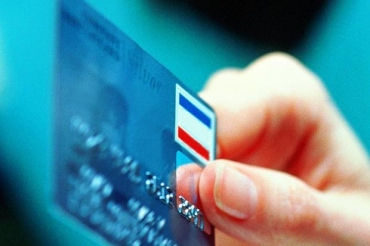Thanks to increased reliance on technology and new savvy among identity thieves, fraud and identity theft have become increasingly common problems. Chances are good that you have already been a target of identity theft – or know someone who has. Fraud prevention and response requires an annoying amount of work on your end from the moment you hear about it. Fortunately, banks are now stepping up to offer services and prevention that can enhance your security and make dealing with fraud a lot easier.
Notifications
Today notifications are a widespread feature that banks offer for accounts, debit and credit cards: In case of suspicious purchases, banks will send you alerts or call you to notify you about them. If the purchases are obviously a case of fraud or theft, then you can take immediate steps to cancel the card and stop payments, which can save you a lot of lost money. It also serves as a warning that you need to report identity theft or stolen guards to other organizations like the police or IRS to help protect yourself further.
Online Protection
Banks offer several degrees of online protection for their banking services. Malware and antivirus monitoring software can pick up on problems your login computer may have, but banks also offers other types of online protection. Their secured sites will typically sign you out after a certain amount of inactivity to prevent any unauthorized activity (useful in case you have wandered away from the computer or a mobile device). You can also choose to get online statements instead of paper copies, which can reduce some of the old-fashioned identity theft via digging through trash cans – still a surprisingly effective method for criminals.
Guides for Emergencies
Wondering what to do when it looks like your identity has been compromised or your accounts accessed? Banks are a great place to start. Not only do they tend to offer plenty of guides on who to communicate with inside the bank and what to do, they also offer links to official federal documents on the steps you should take, the law enforcement agencies you should contact, and other important information.
ACH Block
An ACH block is essentially a filter for electronic payments. The bank only agrees to process checks for approved vendors – and with money caps so the checks cannot exceed a certain amount. This is especially helpful for online companies that want to directly prevent fraud even outside of their own business. A similar option, called Positive Pay, is offered for more traditional payment systems.
Lockboxes
A lockbox can be set up for customers with invoices, essentially securing the process with your accounts payable division (or just your financial manager, for smaller businesses). This allows more control over the invoice process and keeps people from adding more onto a bill and getting away with it.
Insurance
Yes, some banks offer insurance for identity theft and other options. You’ll want to take a close look at the plan, but if you are a frequent target for ID theft and other issues it may be worth the expense in order to get reimbursements for your work.

